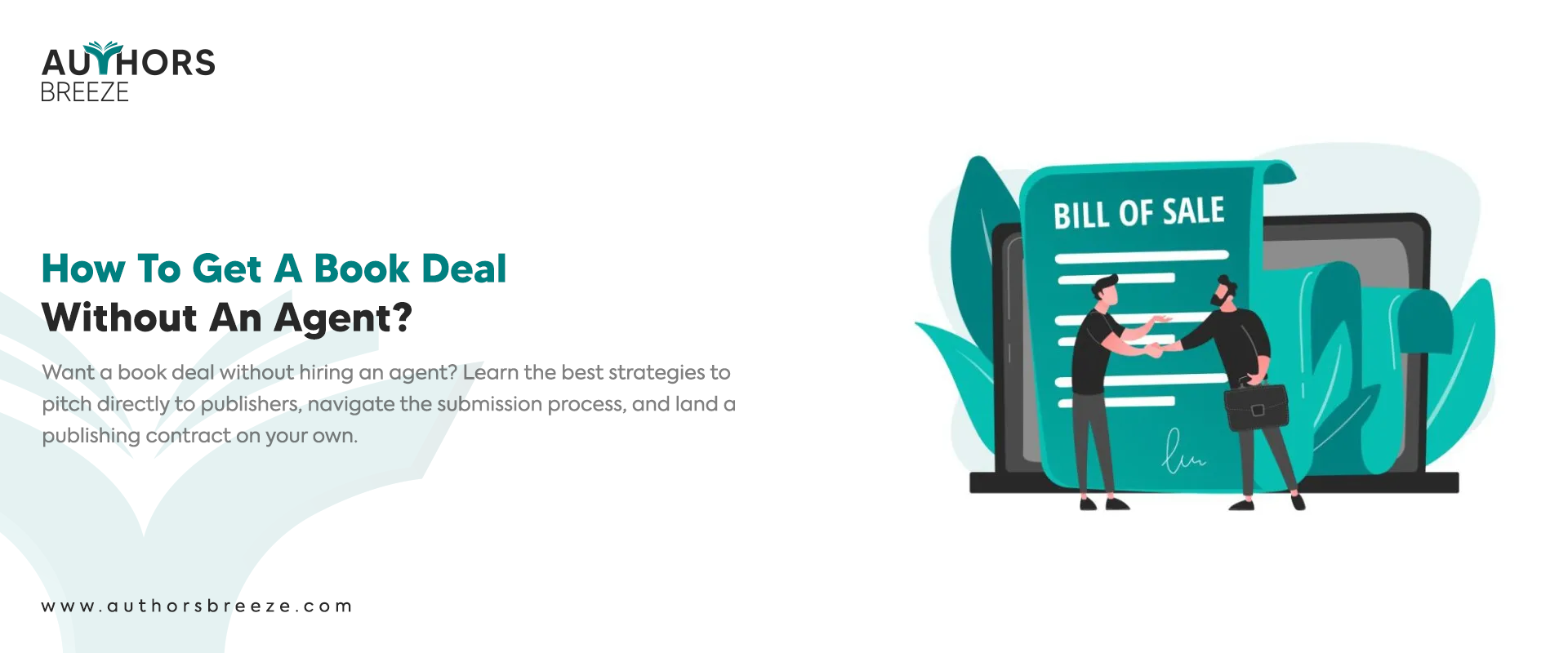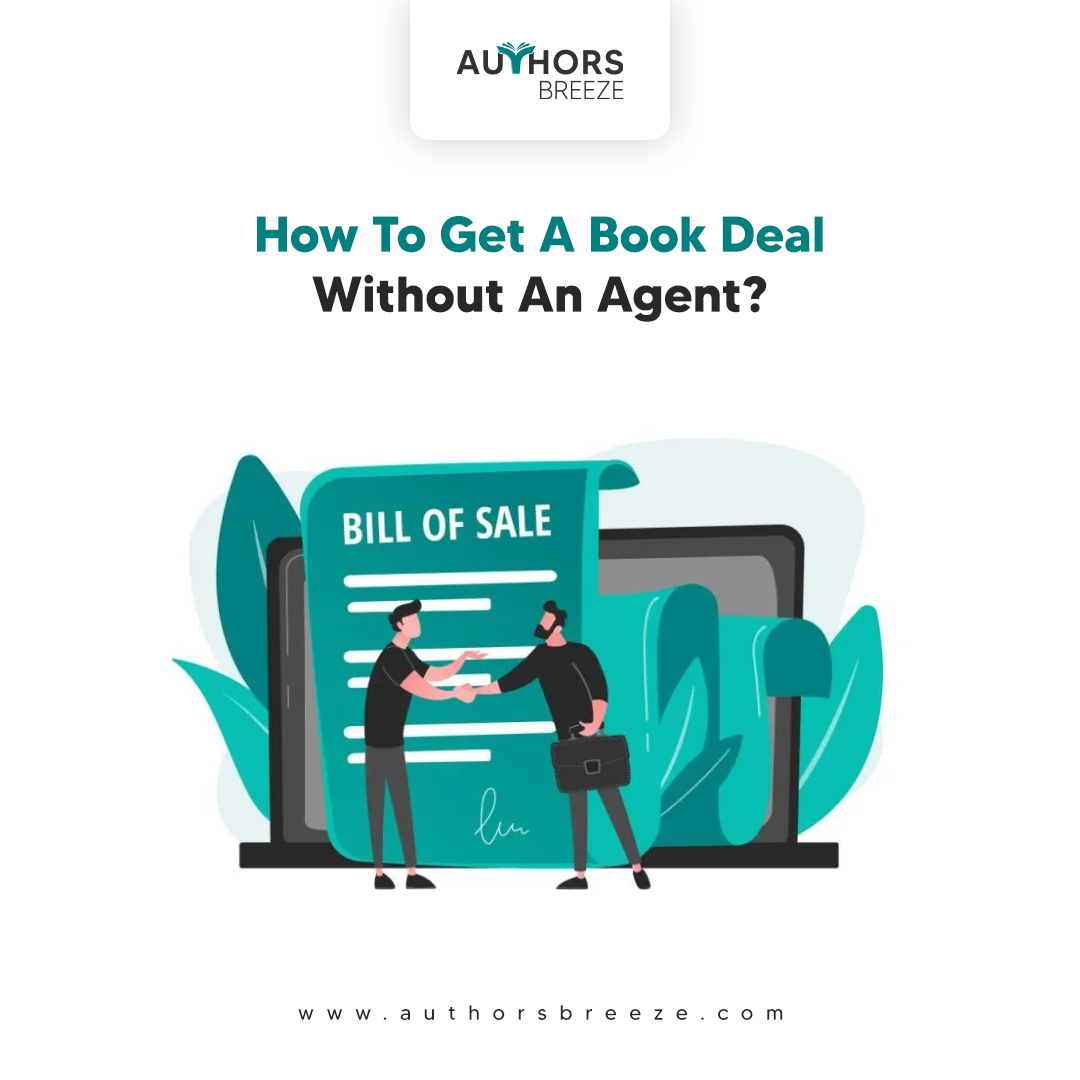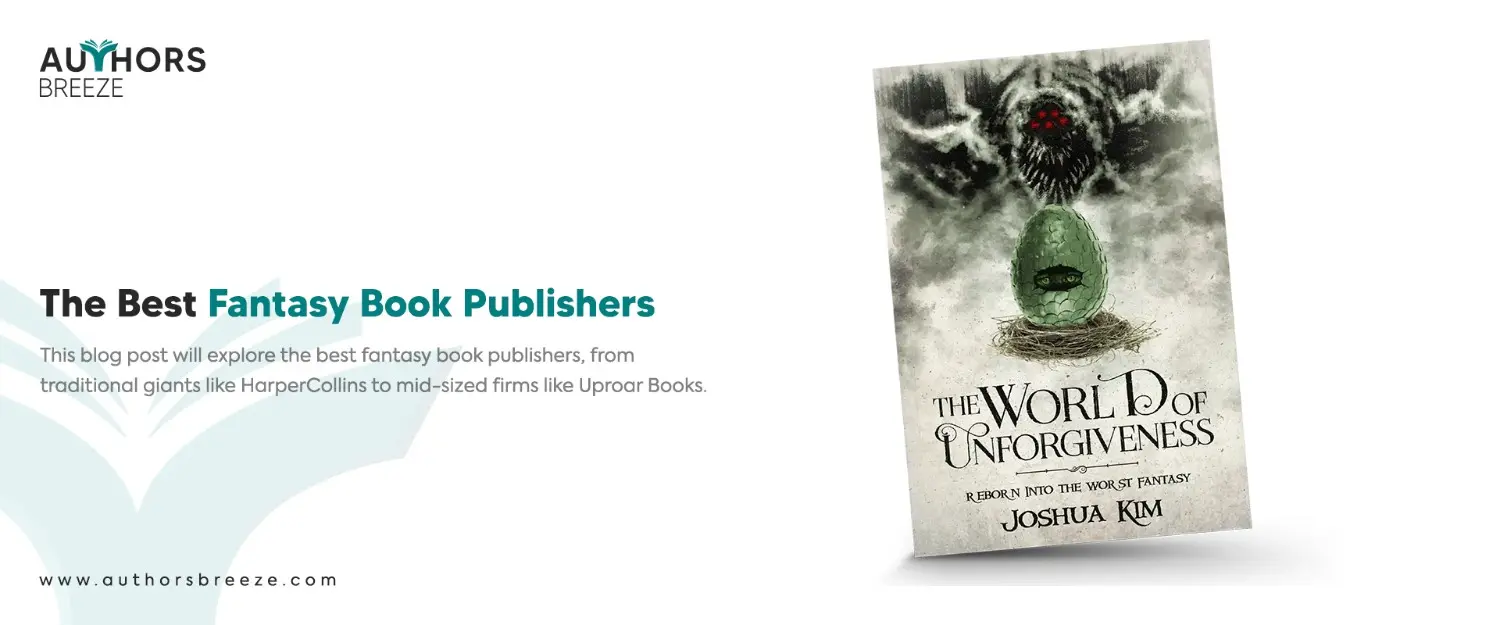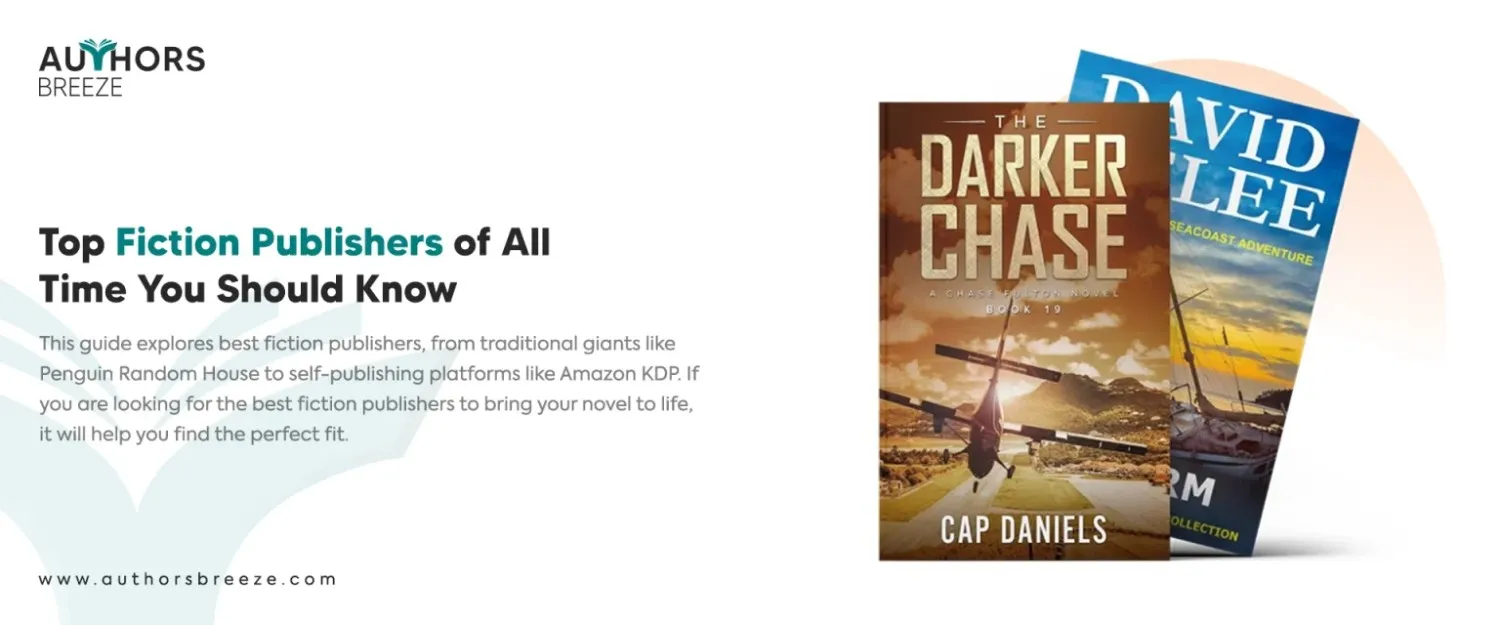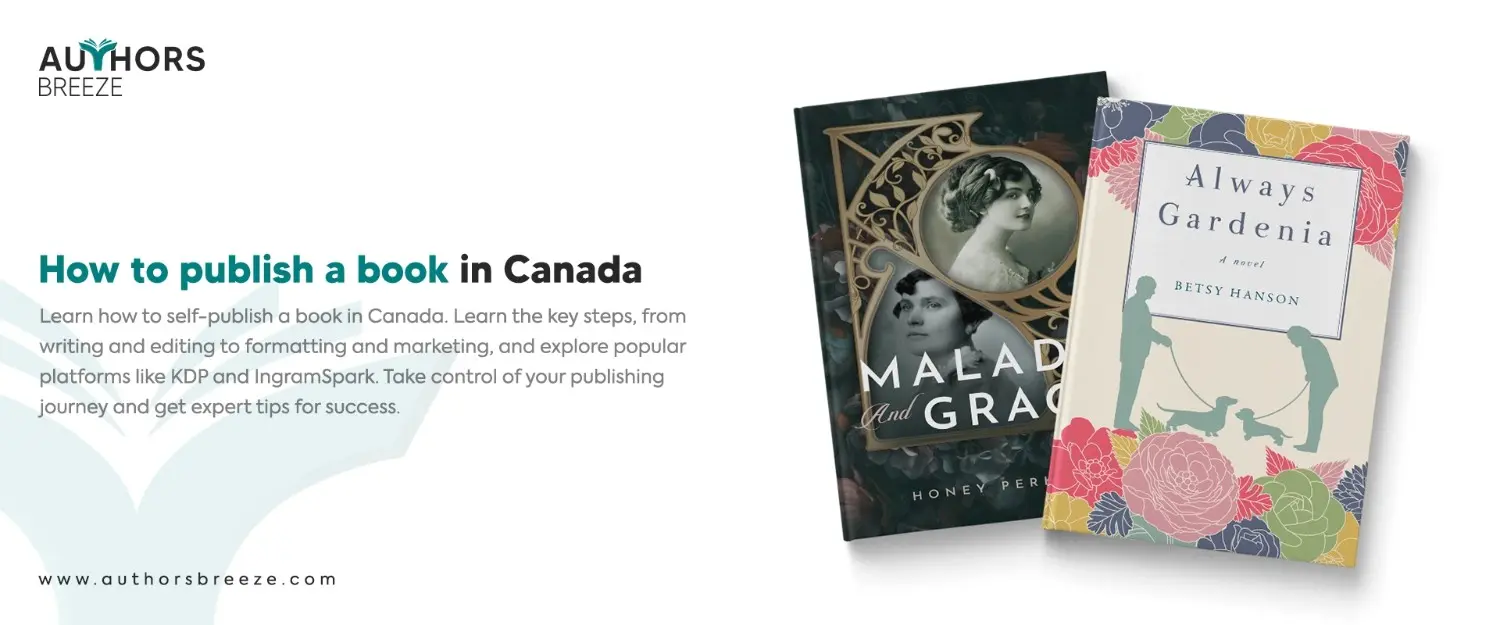Don’t Have Time to Read? Listen to this Article Instead!
Key Takeaways: How To Get A Book Deal Without An Agent
- In today's digital world, to get a book deal without a literary agent is possible.
- A book deal is a legal document between a writer and publisher to get a book published.
- The key elements of a book deal include details about advance, royalties, sales and rights. It also includes contact length and marketing strategies.
- Many small presses and indie publishers accept un-agented submissions.
- In order to get a book deal, authors should research potential publishers. You can use online resources and follow their guidelines when submitting.
- Writers should join different writing communities and writing contests to keep an eye on open submission calls.
- Authors can also pitch to different editors directly to get a book deal. However, for a successful pitch, make sure to write a catchy query letter explaining your book's theme and its potential to become a successful read.
- Nowadays, authors can first self-publish their books and then pitch them to traditional publishers to make their books more visible.
- To publish your book, hybrid publishers are also another good option. They help you in getting a book deal by providing access to industry experts as well as necessary author services.
- Authors can also submit their writings to various literary magazines to get more visible.
- Other tactics for effectively publishing a book are to leverage social media, build a loyal network and understand the targeted audience.
- There are both pros and cons of getting a book deal without an agent. However, it totally depends on your goals, experience, and the type of publisher you're working with.
Independent Publishing, Without an Agent
Let our team of experts help you self-publish your book and reach readers worldwide without worrying about landing a book deal.
Introduction
To get a book deal without an agent may seem like a daunting challenge to many authors, but it's entirely possible, especially if you know the right approach. While literary agents often serve as gatekeepers to major publishing houses, many independent and mid-sized publishers are open to direct submissions from authors.
Though agents provide valuable expertise, negotiate contracts, and help writers navigate the complexities of publishing, going the independent route can offer a more direct path to getting published. Many smaller publishers actively seek fresh voices and are willing to work with un-agented authors, particularly if their book fits within the requirements.
Also, self-publishing and hybrid publishing options have expanded the landscape, giving authors more opportunities than ever before.
Therefore, with careful research, preparation, and persistence, you can secure a book deal on your own terms. So, are you ready to take your writing career into your own hands? Then, continue reading this guide on how to get a book deal without an agent and learn how to make your dream a reality!
How Do Book Deals Work?
If you are a seasoned author, you must have known how book deals work (either agented or un-agented). But if you are a new writer who just stepped into the literary world, it is better to understand how to get a book deal and publish a book.
What is a book deal?
A book deal is a contract between you (the author) and a book publisher in which the publisher agrees to publish the author’s book in exchange for a share of profits.
Key Elements
Although the terms of a book deal can vary widely. It typically includes the following elements:
Advance
An advance is an upfront payment that the publisher offers the author against future royalties. This amount is usually paid in installments, such as when signing the contract or on publication.
Royalties
Royalties are the money that the author receives after the book starts making more money than the advance payment. Usually, royalty rates are between 10% to 50% depending on the format (i.e., paperback, hardcover or ebook).
Rights And Licensing
Book deals specify which rights the publisher is acquiring and which are obtained by the author. These can include the following:
- Copyrights
- E-book rights
- Audiobook rights
- Translation rights
- Film/TV rights
Contract Length
It refers to the timeframe of how long a book deal will last. During this period, the publisher has the exclusive right to publish the book. Also, the author cannot publish it elsewhere without the publisher's approval.
Marketing And Promotion
The publisher is responsible for marketing and promoting the book, which can include advertising, public relations, and author tours. The author may also be asked to participate in promotional activities and run book marketing campaigns.
Accounting And Reporting
The publisher is responsible for keeping track of book sales and sending the author's regular reports on earnings and royalties.
How To Land A Book Publishing Deal Un-agented
1. Submit Directly To Small & Independent Publishers
Many independent publishers welcome unsolicited manuscripts. That is to say, you don't need an agent to submit your work. These publishers typically focus on niche genres.
So, here's how you can find the right publisher:
Research Independent Presses
Look out for publishers that align with your book's genre and style. You can check their website for submission guidelines.
Use Online Resources
Websites like Poets & Writers, Duotrope, and The Submission Grinder can help you discover publishers that are open to direct submissions.
Follow Submission Guidelines Carefully
Each publisher has specific requirements regarding format, word count, and cover letters. So, if you fail to follow these rules, it can lead to an automatic rejection. Thus, be careful while sending in your submission material.
Some well-known independent publishers that accept un-agented submissions include the following:
- Graywolf Press (Literary Fiction & Nonfiction)
- Coffee House Press (Fiction, Poetry, Nonfiction)
- Akashic Books (Crime Fiction & Literary Fiction)
- Soho Press (Mystery, Crime, & Literary Fiction)
- Chronicle Books (Illustrated & Nonfiction Titles)
2. Enter Writing Contests & Open Submission Calls
Many publishers and literary organizations hold writing contests where winners receive book deals. This is an excellent way to get published without an agent while also gaining recognition for your work.
Famous contests that offer book deals are as follows:
- Amazon's Kindle Storyteller Award (for self-published authors)
- Dzanc Books Prize for Fiction
- Graywolf Press Nonfiction Prize
- The Iowa Short Fiction Award
Additionally, some publishing houses hold open submission periods, which allow unpublished and un-agented writers to submit their manuscripts directly.
3. Pitch Directly To Editors
Although many large publishers only work with literary agents, some of them have editorial imprints that accept un-agented submissions. This is especially true for smaller presses and genre publishers. You can find them through the publisher's website, literary events, and publishing directories. Some of the well-known editors include the following:
- com (Science Fiction & Fantasy)
- Harlequin (Romance & Women's Fiction)
- Sourcebooks (Various Genres)
However, when pitching to editors and publishers make sure to add a compelling query letter, a strong book synopsis and sample chapters from your book.
Pitch Your Book Like A Pro
Struggling with structuring your pitch effectively? Seek help from our expert ghostwriters and get a clear, compelling query letter that publishers will love
4. First Self-Publish, Then Approach Traditional Publishers
In today's literary world, self-publishing has been widely used to get books published. You can self-publish your book first, and then if you think you want to get a bigger picture of your book, you can get it published traditionally.
Nevertheless, here's how self-publishing can work for you and get you a deal with a bigger press.
- Use Amazon Kindle Direct Publishing (KDP) or IngramSpark to release your book.
- Market your book effectively with the help of social media, book bloggers, and paid ads.
- Track your sales and engagement to show publishers that your book is in demand.
Some of the well-known, originally self-published books that later made it to traditional publishers are as follows:
- The Martian by Andy Weir
- Fifty Shades of Grey by E.L. James
- Still Alice by Lisa Genova
Also Read: “The 20 BEST Self-Publishing Companies”
- Partner With A Hybrid Publisher
Hybrid publishers like She Writes Press and Inkshares offer a mix of traditional and self-publishing. You invest some money upfront, but they provide professional publishing services and distribution. Key benefits of working with a hybrid publisher include:
- More creative control and ownership of own work.
- Access to industry professionals.
- Connections with established distribution channels.
Key Tip:
“Before choosing hybrid publishing, ensure its terms and conditions align with your goals.”
- Submit To Literary Magazines And Anthologies
Publishing short stories, essays, or excerpts in literary magazines and anthologies is a great way to build credibility as a writer and gain recognition in the publishing world. Many successful authors started by getting their work published in well-respected magazines before securing a book deal because:
- Literary magazines provide an opportunity to showcase your writing style.
- Helps grab the attention of editors and publishers.
- Can establish and enhance your readership.
Some leading magazines include:
- The Paris Review
- Ploughshares
- Granta
- McSweeney's
Other Ways To Get A Book Deal
Build Network & Relationships
Publishing is an industry where connections matter. Even if you don't have an agent, you can still network by:
- Joining writing groups like the Authors Guild and Mystery Writers of America for opportunities.
- Following publishers on social media for submission updates.
- Attending book festivals and workshops to meet industry professionals.
These tactics can help you introduce yourself to key players in the industry.
Leverage Social Media and Online Platforms
Some authors secure book deals by building an audience first. Platforms that help include:
- Wattpad (young adult, fantasy, romance)
- Substack (nonfiction, essays)
- TikTok (#BookTok community)
- Medium and personal blogs
Publishers are more likely to take notice if you have an engaged following.
Know Your Audience
Understand your audience to boost your chances of a book deal. This is because knowing your audience can help you craft a stronger pitch and ultimately increase your chances of attracting a publisher. Here's how you can know your audience:
- Define your book's genre.
- Research bestselling books in your niche.
- Build an online presence (your author’s website, blogs, social media platforms).
Is It Better To Get A Book Deal Without An Agent?
Whether it's better to get a book deal without an agent depends on your goals, experience, and the type of publisher you're working with. Here are the pros and cons of going un-agented:
Pros
- You retain more control over your manuscript and contract negotiations.
- It helps you build direct relationships with publishers and editors.
- Authors can keep 100% of their advance and royalties instead of paying an agent's commission (approx. 15%).
- Many small publishers accept unagented submissions, which gives new writers more chances.
Cons
- It is harder to get a deal with major publishers (especially THE BIG FIVE) since most of them only accept agented submissions.
- Negotiating a contract on your own can be difficult, and also it can be less favourable.
- Agents provide valuable market insights and career guidance that you may miss out on.
- Without an agent, you might have to handle more of the marketing and promotion yourself.
Conclusion
Getting a book deal without an agent is absolutely achievable. However, it takes determination, research, and creativity. In order to land a book deal, authors should target independent publishers, pitch directly to editors, network strategically, and understand their audience.
Also, you can consider the self-publishing option to get your book published on your own terms. So, if you'd like to get help, seek assistance from Authors Breeze and simplify your book publishing process.
FAQs
How to get a book deal before writing the book?
To land a book deal before writing the book, you will need a strong book proposal (common for nonfiction books) that should include:
- Manuscript overview
- Chapter outline
- Sample chapters (1-3)
How much does a first-time author earn on a book deal?
A first-time author usually gets an advance of $1,000 to $10,000, plus royalties (5–15%) from book sales if the advance is earned back.
Your Book Deserves a Deal
Want to stand out in a crowded market? Work with our professionals to maximize your chances of getting published.

